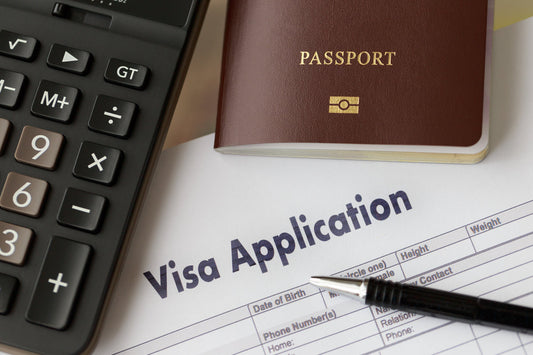
Non-Residents and Import Consumption Tax: Why ACP
Yoshio YamaguchiShare
What is an Attorney for Customs Procedures (ACP)?
When a foreign national or foreign company not residing in Japan (hereinafter referred to as a “non-resident”) intends to sell to consumers in Japan via an e-commerce platform such as Amazon, the non-resident will ship goods to Japan and transport them to an Amazon warehouse. In this case, the non-resident is considered the “importer” responsible for paying customs duties and import consumption taxes.
Under Japanese law, when a non-resident imports goods into Japan, they must appoint an Attorney for Customs Procedures (ACP) who resides in Japan and notify the relevant authorities of the ACP’s name and address (Article 95 of the Customs Law).
An ACP, or Attorney for Customs Procedures, acts as the liaison between customs and the non-resident, receiving and submitting documents, handling refunds, and managing other matters on the non-resident’s behalf. The primary purpose of appointing an ACP is to ensure smooth communication between the non-resident and Japanese customs authorities. If an ACP is not appointed, the import procedures are typically carried out under a third party’s name, as non-residents are generally not allowed to act as the “importer” themselves.
Failing to appoint an ACP can lead to complications, particularly when claiming a refund of import consumption tax, which can significantly impact transaction profitability. This article explains the disadvantages of conducting import procedures without appointing an ACP, starting with the consumption tax calculation structure.
Mechanism of Purchase Tax Credit or Refund
When a non-resident imports goods into Japan, the consumption tax process works as follows:
(i) At the time of importation
To retrieve imported goods from customs, the non-resident must file an import declaration and pay customs duties and import consumption tax, which is 10% of the merchandise’s value.
Example: If the total value of goods is ¥240,000, the import consumption tax would be ¥24,000.
(ii) At the time of sale
When a non-resident sells goods to a consumer, the total amount received includes consumption tax, where 10/110 of the sales amount represents consumption tax.
Example: If the sales proceeds total ¥330,000, ¥30,000 of that is consumption tax.
(iii) Payments to Amazon and other platforms
Non-residents pay fees to platforms like Amazon for services such as delivery agent fees and inventory storage. For these services, 10/110 fees include consumption tax.
Example: If a non-resident pays ¥55,000 to Amazon, ¥5,000 is a consumption tax.
However, fees like advertising costs fall under the “digital service provision” category under the Consumption Tax Act, and these payments do not include consumption tax.
(iv) When filing a consumption tax return
Non-residents must file a consumption tax return annually. The amount of consumption tax payable is calculated as follows:
Consumption tax due (¥1,000) = Consumption tax collected from sales to Japanese consumers(¥30,000) – Import consumption tax paid (¥24,000) – Consumption tax included in payments to Amazon, etc. (¥5,000).
In this calculation, the consumption tax paid on imports and platform fees is subtracted, which is referred to as a “purchase tax credit.” If the total purchase tax credit exceeds the amount of consumption tax collected from sales, the non-resident is eligible for a refund.
The above scenario assumes that the non-resident has appointed an ACP and is performing import procedures under the non-resident's name. While not explicitly stated in the law, if a non-resident does not appoint an ACP and conducts import procedures under a third party’s name, it would be difficult for the non-resident to claim a deduction of the import consumption tax. This is because the non-residents are unable to present documentation, such as an import certificates, to confirm that the non-residents have actually paid the import tax.
If the import consumption tax cannot be deducted, the consumption tax liability would be ¥25,000 (i.e., ¥30,000 in sales tax minus ¥5,000 in platform fees), which is a significant disadvantage.
This calculation is called the general taxation method.
Impact of Tax Reform
Previously, non-residents with annual sales in Japan of ¥50 million or less could use either the simplified taxation method or the 20% special taxation method instead of the general taxation method. However, under the April 2024 amendments to the Consumption Tax Law, from taxable periods beginning on or after October 1, 2024, non-residents will no longer be eligible to apply the simplified or 20% special taxation methods. Instead, they must use the general taxation method.
As a result, for all non-residents, regardless of size, the ability to claim credits for import consumption tax on purchases will become an important issue.
Conclusion
Non-residents importing goods into Japan must appoint an ACP. Failing to do so means they cannot deduct import consumption tax, resulting in a higher consumption tax liability. An ACP can be either a corporation or an individual with a domicile in Japan, and they do not required to have specialized knowledge of customs procedures.
Although Yamaguchi Consulting is not a specialist in customs matters, we can act as an ACP for our clients who are non-residents.



